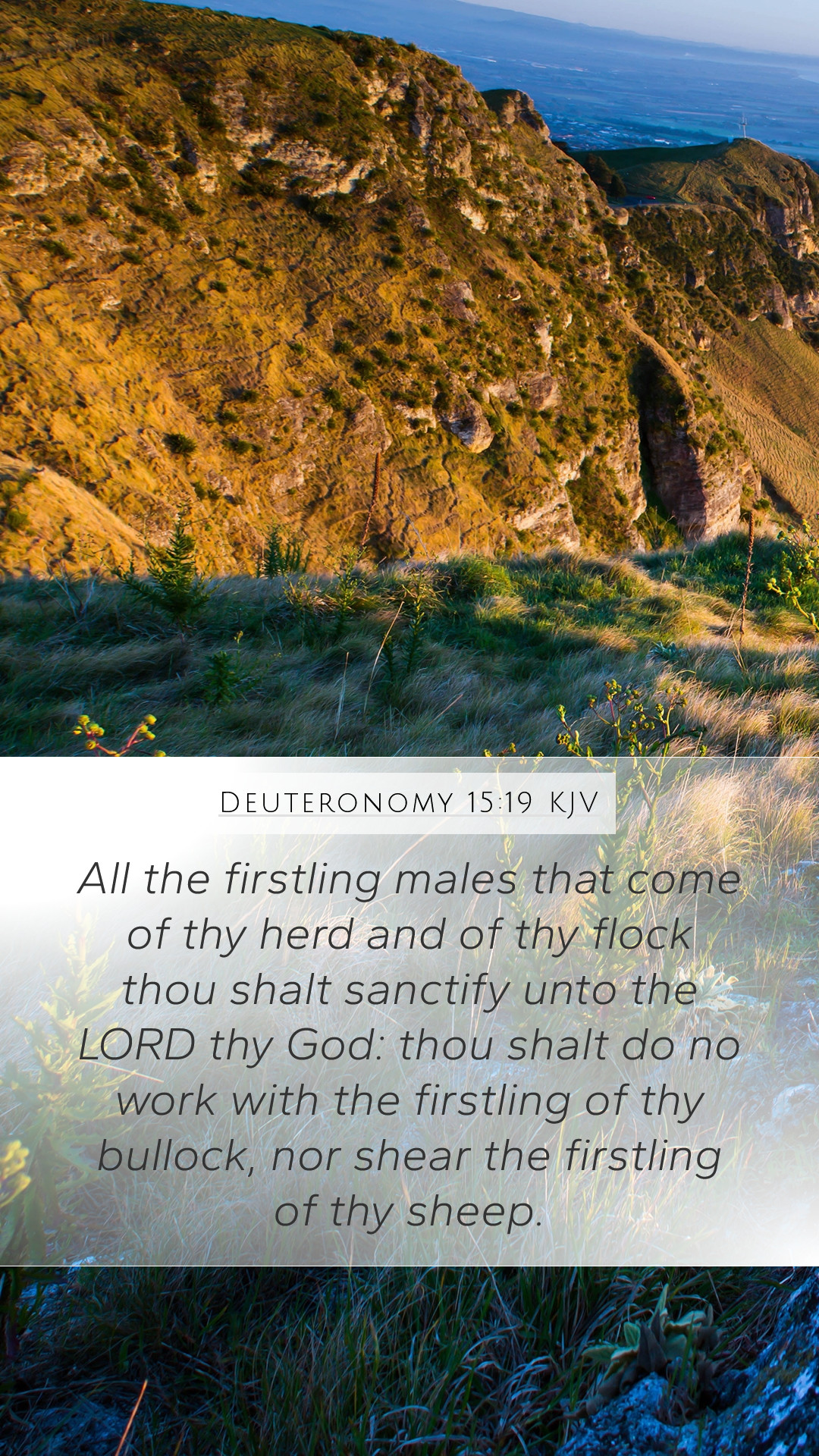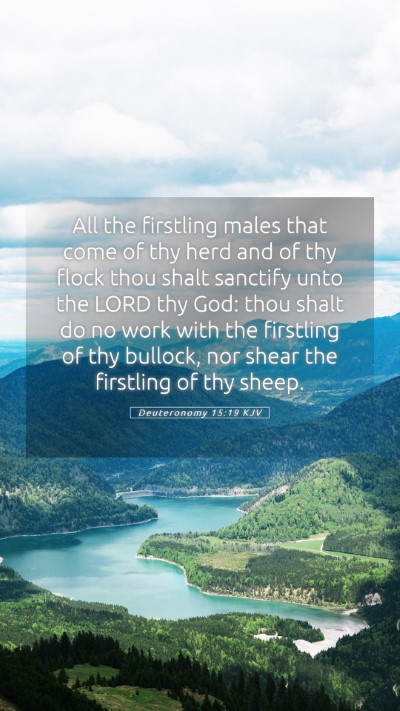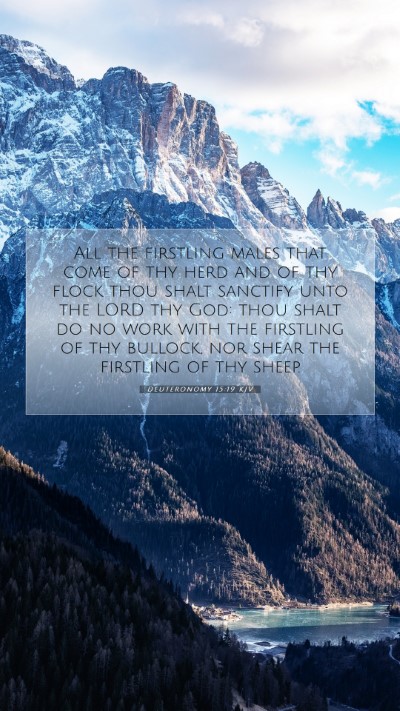Bible Verse Commentary on Deuteronomy 15:19
Deuteronomy 15:19 states, "All the firstborn males of your herds and flocks you shall dedicate to the Lord your God. You shall do no work with the firstborn of your ox, nor shear the firstborn of your sheep."
This verse holds significant importance in the context of biblical law, focusing on the dedication of the firstborn to God as a symbol of consecration and acknowledgment of divine ownership.
Understanding the Biblical Context
In the Hebrew culture, the concept of the firstborn is sacred, signifying not just the physical firstborn lamb or calf but also the primary importance that they held in the family structure.
Matthew Henry's Commentary Insights
According to Matthew Henry, the firstborn is precious because it represents the strength and future of the household. He emphasizes that dedicating the firstborn not only serves as an act of worship but also as a reminder of God’s deliverance of Israel from Egypt, where the firstborn were spared during the Passover.
Albert Barnes' Commentary Perspectives
Albert Barnes points out that the instructions given in this verse reflect God’s ownership over the Israelites. By dedicating the firstborn, the people recognized God’s sovereignty and their obligation to Him. The commands demonstrate a loving and just God who disciplines His people while also expecting them to honor Him in tangible ways.
Adam Clarke's Commentary Explanation
Adam Clarke highlights that these practices served as a physical representation of spiritual truths. He notes that in bringing the firstborn to the sanctuary, worshippers were reminded of God’s blessings and faithfulness, thus proclaiming His provision and grace within their lives.
Implications for Daily Life
This verse encourages believers to reflect on what they dedicate to God in their own lives. Are there areas where we acknowledge God’s provision? Just as the firstborn was given to God, we are called to give our best to Him in all that we do.
Bible Study Insights
- Recognizing God's ownership over our lives and possessions.
- Understanding the importance of dedication in worship.
- Learning the significance of historical practices in the Old Testament.
Cross References
- Exodus 13:2 - "Consecrate to me all the firstborn. Whatever opens the womb among the people of Israel, both of man and of beast, is mine."
- Numbers 3:13 - "For all the firstborn are mine. On the day that I struck down all the firstborn in the land of Egypt, I consecrated for my own all the firstborn in Israel."
- Leviticus 27:26 - "But a firstborn of animals, which as a firstborn belongs to the Lord, no man may dedicate, whether ox or sheep, it is the Lord's."
Conclusion
In conclusion, Deuteronomy 15:19 gives us not just a commandment, but a profound understanding of how we are to perceive our relationship with God. The act of dedicating the firstborn is timeless and remains relevant as we seek to understand Scripture and apply its teachings to our daily lives. Through this biblical exegesis, believers are invited to engage deeply with the text and to explore its profound implications for worship and dedication in their own spiritual journeys.


